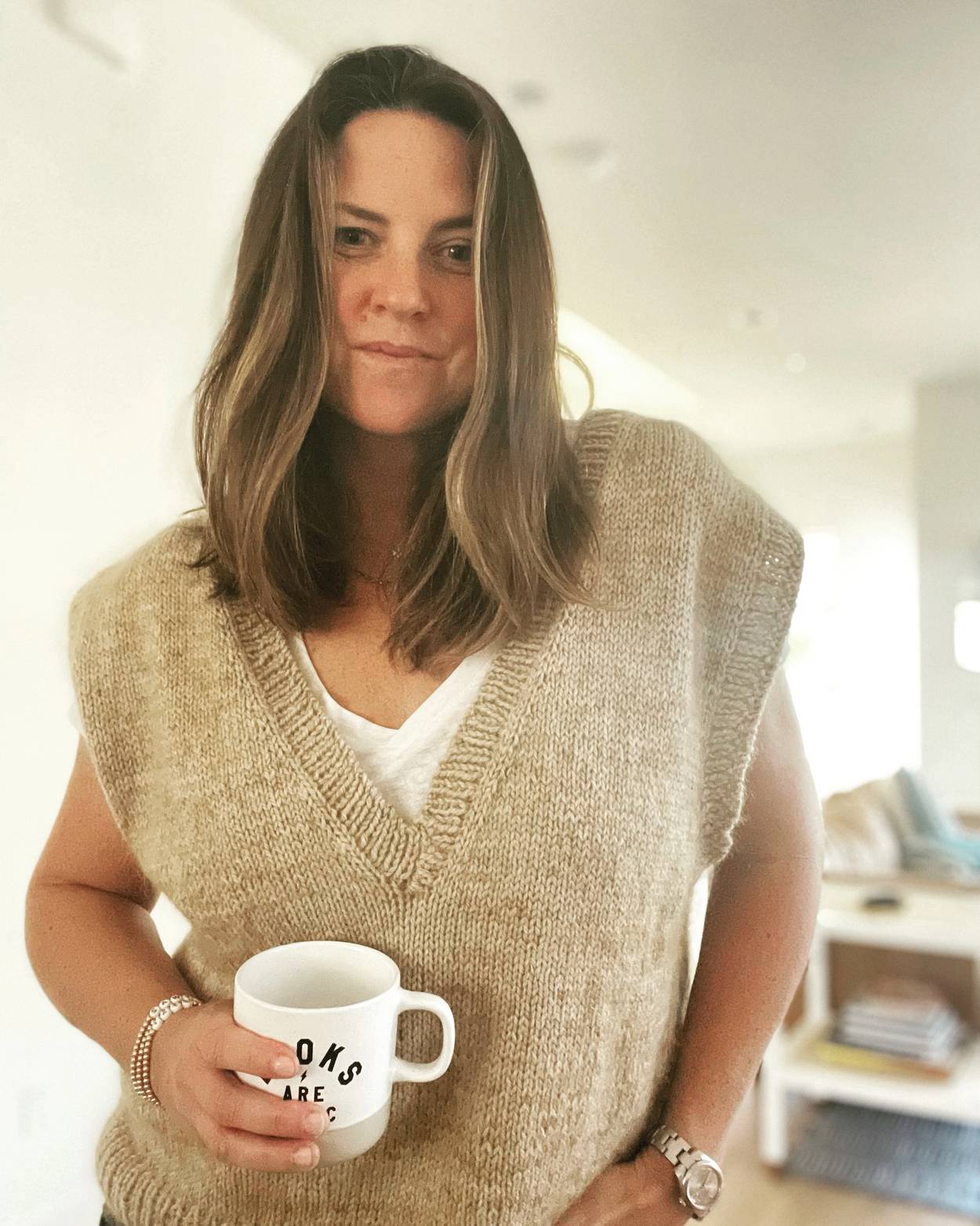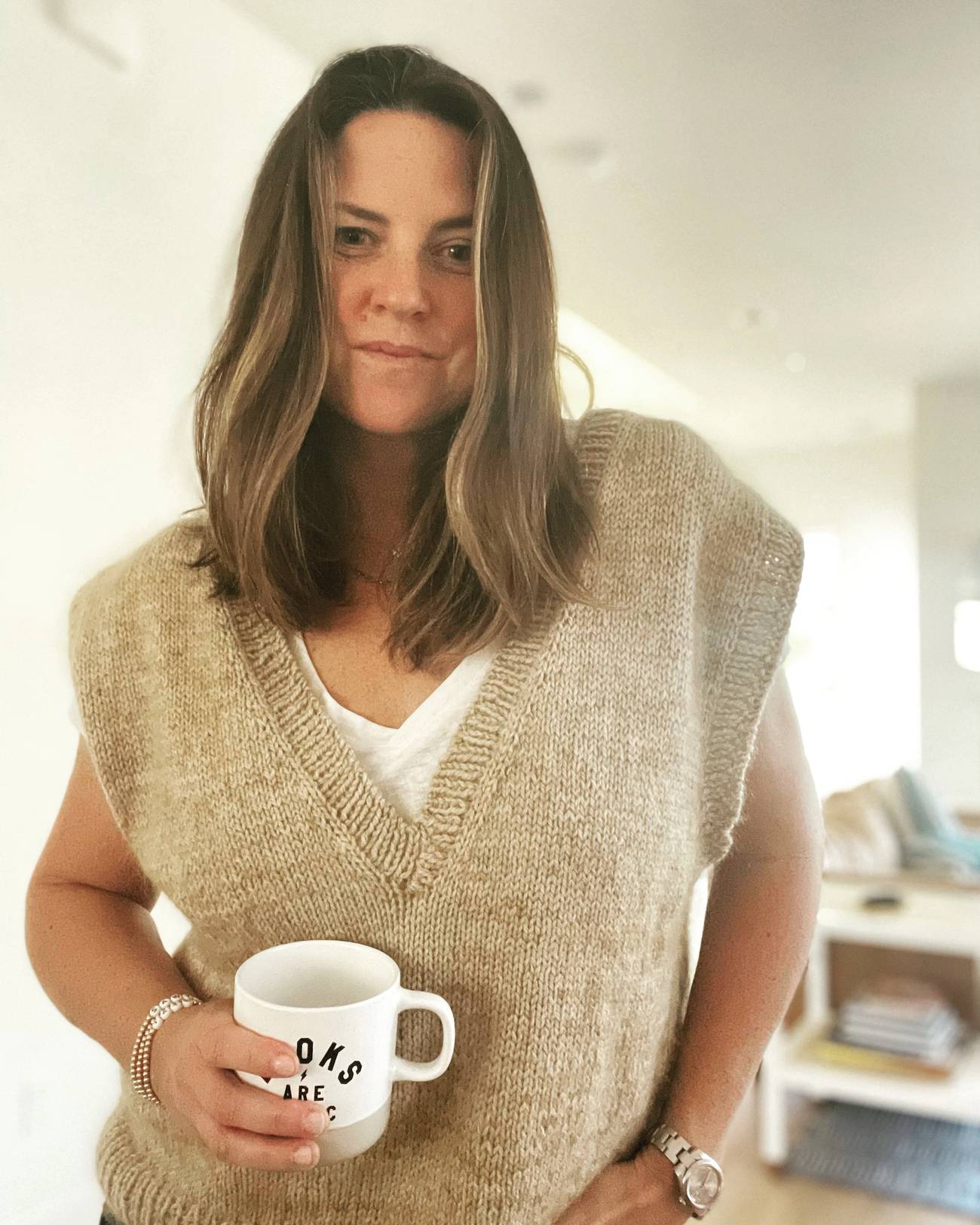Don’t Call Me a Convert
The truth is, there is no label that fits me except ‘Jew’




“Will I ever be Jewish enough?” I asked. The question came at the end of an hour-long meeting with my soon-to-be rabbi, in August 2019. The meeting was meant to determine whether the conversion program at his synagogue was a good fit for me and my family; but my question for him was meant to determine whether I’d be strolling through shul with a scarlet “C” over my head once I was officially Jewish.
“Converts are Jews,” he said. “Full stop.” Though my question had come out casually, my eyes told a different story; I was wiping away tears. Deep inside, I feared I’d do all the work only to not be considered “fully Jewish” by those born into Judaism. The rabbi—Beau Shapiro of Wilshire Boulevard Temple, in Los Angeles—tried to reassure me that converts are quite respected because they chose this path. “And technically,” he added, “no one is allowed to ask if you’re a convert anyway.”
I’ve since learned that most Jews have imposter syndrome: Reform Jews who compare their observance to their Conservative friends, Conservatives who compare their practice with their Modern Orthodox friends. To be a Jew is to feel you don’t know enough. But take it from me, a mikveh swimmer since just before the time of the COVID-19 pandemic: Comparing your Jewish practice to your friend’s is very different from feeling like you wear your newish Jewishness on your sleeve, now and forevermore.
Which is why, as we approach Shavuot, “the convert’s holiday,” I ask you to please avoid the word convert.
As my rabbi promised, no one has ever asked me outright if that’s what I am, and I’ve never heard the hard-C pronunciation I feared, the word snarling its way out from behind the molars. But when it comes up innocently—even affectionately—in conversation, not only is the word an ill-fitting descriptor, but also it immediately separates my Judaism from yours.
Literally speaking, a convert is one who has been converted, one who has been persuaded to change her or his beliefs. This surely applies to some: Four pupils in my course of study were there at the behest of their fiancés, so that they could have a Jewish wedding, and likely wouldn’t have charted this path on their own. But this doesn’t apply to me. Nobody converted me or persuaded me to change my beliefs. I was raised Christian, but always felt Jewish. I explored it off and on for decades; when my mother’s 23andMe DNA test revealed she was actually slightly more than half Jewish, I felt like whatever permission I was seeking to go make it official had been granted. So no, no persuasion there.
At its best, convert describes a specific space and time when a person is moving from whatever spiritual space they inherited and into the Jewish space they’re meant to be in. But labeling someone a “convert” after the conversion paperwork is signed just underscores that we are different from you.
And we aren’t lacking for reminders—they’re all around us. Like at my daughter’s summer camp, which we toured with the incoming class of Ramah-niks. As the kids set off to check out the ropes course, the parents were corralled together, and our introduction icebreaker was to announce which Jewish summer camp we attended. I kept my three nights at a Brownie camp in the second grade to myself. There are the reminders when we visit friends during Hannukah, and there’s not just one family hannukiah, there’s a whole crop of them—some that were baby gifts, some crafted from bolts as a Hebrew school craft, some heirlooms. And speaking of, I don’t have any. Every Shabbat, I set a kiddush cup on the table that holds no generational or sentimental significance. I bought it off an Instagram ad during my ceramics phase. For as much as I love my Judaism, a part of me is envious of those who never have to feel othered by it within the Jewish world. When I hear “convert,” I’m reminded more of the ways I don’t fit in and not of the many ways I do.
Labeling someone a ‘convert’ after the conversion paperwork is signed just underscores that we are different from you.
I cannot share my discomfort with convert without also sharing that I have a very tight-knit community of Jewish friends and clergy, all along the spectrum of observance, who don’t give a second thought to how I got here and make me feel like one of them whether we’re together for a simcha or shiva. And I am so grateful for my non-Jewish friends who’ve stood beside me on those same occasions, as if they’ve known me no other way. Something all of those people have in common: No one calls me a convert.
Having always felt uncomfortable with the “convert” tag, I have looked into other possible descriptors. Maybe something was lost in translation, I thought. Certainly, whatever word convert is in modern Hebrew or Yiddish must be better. Nope! The word is ger, which means “stranger,” or worse, “resident alien.” A word that means you’re not part of us cannot magically mean you are one of us.
Does that make me a “Jew by choice,” another popular alternative? It bears pointing out that program I was a part of what was called “Choosing Judaism.” A gentler approach, to be sure. But the trouble with this one is that I don’t feel it was a choice. Judaism was always baked into me, something I just wasn’t ready to pick at, until I couldn’t bear not to a minute longer.
The truth is, there is no label that fits me except “Jew.”
As I tried to get to the root of all this, I was reminded of a real flash point during the process of becoming halachically Jewish, and it came at the very end of my mikveh. After my three submersions were complete and a chorus of Siman tov u’mazel tov was being sung in the background, the mikveh attendant crouched down, looked me in the eye, and said, “Welcome home.”
When you’re “home,” you just are who you are. Sure, your experiences forever lie under the surface, but you aren’t being constantly reminded of them. The luxury and reward of feeling a sense of home is you get to just be there without dwelling on how you got there. At home, like you, I am Jewish. Not a convert. Just Jewish.
Courtney Hazlett is the showrunner for Tablet Podcast Studios, in addition to being a TV/film producer and writer. She and her family live in Los Angeles.